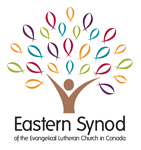SEXUAL ABUSE OR HARASSMENT POLICY
Evangelical Lutheran Church in Canada March 2006
INDEX
- APPLICATION
- DEFINITIONS
- POLICY
- ALTERNATIVE COURSES OF ACTION
- SUPPLEMENTARY DIRECTIVES
Appendix: A FORMAL COMPLAINT FORM
Appendix: B ACKNOWLEDGEMENT FORM
ELCIC Sexual Abuse or Harassment Policy – March, 2006 2
- APPLICATION
- This policy applies to all rostered ministers, seminarians and other persons serving under call or by synodical appointment.
- If a complaint is lodged against any person identified in A. above, or abusive sexual conduct is confessed or acknowledged by any such person, the procedures outlined in the ELCIC Manual Re: Discipline of Rostered Ministers and the ELCIC Administrative Bylaws governing discipline shall apply.
- DEFINITIONS
- The definition of what constitutes sexual abuse and sexual harassment is governed by provincial legislation under the Human Rights Code(s) in most provinces.
- For our purposes the definition of the terms used in this manual will be as follows:
“Bishop” – means the bishop of a synod, unless stated otherwise.
“Complainant” – means the person who lodges a complaint.
“Complainant’s Representative” – means a person who acts on behalf of the complainant of sexual abuse or sexual harassment during the period of time when the incident is first reported through to the final resolution of the matter.
“Defendant” – means one who is accused of abusive sexual conduct and includes variations of the term such as abuser, perpetrator, accused.
“Rostered Minister” – means an ordained minister on the roster of ordained ministers or diaconal minister on the roster of diaconal ministers of this church.
“Pastoral Care Support Person” – means persons who are skilled in dealing with matters of sexual abuse or sexual harassment in the church and are appointed by the synod to act in this role. Their role is to “walk with” the complainant or the accused, providing guidance, information and pastoral care.
“Sexual Abuse” – means the use of one’s authority or power, either explicitly or implicitly, to coerce, threaten, force or persuade another person into sexual activities or to punish a person for his or her refusal to participate in the sexual activities.
“Sexual Harassment” – means any unwelcome, unwarranted, unsolicited or offensive sexual conduct that is directed at a person or persons by one in a position of authority, power or leadership and which demeans and undermines the inherent self-worth and dignity of that person or persons or denies individual human rights as guaranteed by Provincial or Canadian Human Rights Code(s). It includes any conduct that coerces, pressures, manipulates, or threatens persons, or curtails a person from participating in the life of the church, fulfilling the duties of their position in the church workplace, freely expressing their ideas, practicing in their chosen church vocation, or freely advancing in their church employment, whether it is a single incident or several incidents over a period of time. “Sexual harassment” may involve two or more persons of the opposite or of the same gender, male or female.
ELCIC Sexual Abuse or Harassment Policy – March, 2006
Continue Reading:
